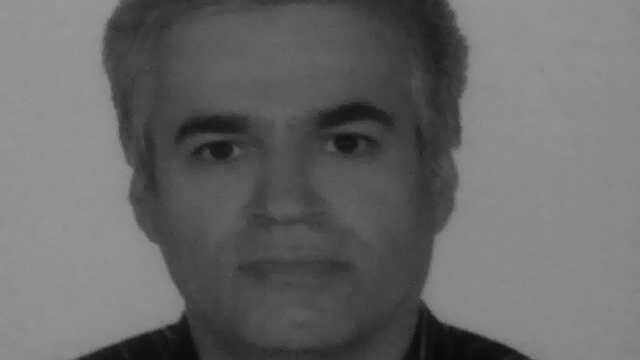Activist Imprisoned and Tortured Without Access to a Lawyer for Shouting “Death to Khamenei”

Labor activist Mehdi Farahi Shandiz, imprisoned for shouting “death to [Ali] Khamenei,” Iran’s supreme leader, is being unlawfully held in Rajaee Shahr Prison’s Ward 10, where non-political prisoners are kept, and has been denied furlough as well as adequate medical care. He did not have access to a lawyer in any of his trials and has been unable to file for appeals.
“Mehdi should have been released in November 2013 but the Judiciary refused to free him because while he was in prison, he was charged with two additional counts of ‘insulting the supreme leader’ and sentenced to three years in prison for each count. That means nine years in prison in total,” a source told the International Campaign for Human Rights in Iran.
“If he stays in prison like this, he will not be released until September 2018. But if he gets a lawyer, there might be a chance to make an appeal and change his sentence,” said the source. “But he doesn’t have the financial means to hire a lawyer and attempts to find a lawyer who would help him pro bono have so far been unsuccessful.”
In June 2010, during a month-long detention period in the Kahrizak detainment facility in southern Tehran, Farahi Shandiz was abused and assaulted “in ways that are difficult to describe,” said the source. “For example they forced his head inside the toilet’s septic tank while a guard put his foot on Mehdi’s buttocks and humiliated him. Harassments of this sort.”
“Also, when he was in solitary confinement, they beat him and broke his arm,” added the source. “But the worst was when he was forced to stand with hands and feet chained for 24 hours. He was not allowed to sit or sleep or even use the toilet. Even when he said he wanted to pray, they did not let him.”
Farahi Shandiz, 55, was sentenced to nine years in prison for three separate charges of “insulting the supreme leader,” six years of which were for charges brought against him while he was in prison.
He suffers from diabetes, but has been denied specialist treatment from outside the prison. Farahi Shandiz has not received any furlough in more than five years of imprisonment.
Furlough, temporary leave typically granted to prisoners in Iran for a variety of familial, holiday, and medical reasons, is routinely denied to political prisoners as a form of additional punishment.
The labor activist, who worked as a private high school tutor, was first arrested at a gathering on International Labor Day on May 1, 2009 at Laleh Park in Tehran. He was released nine months later after spending most of his detention in solitary confinement in the Intelligence Ministry’s Ward 209 at Evin Prison.
He was arrested again in June 2010 and charged with “insulting the supreme leader,” and released on bail two months later. In May 2011, Branch 28 of Tehran’s Revolutionary Court sentenced him to three years in prison. Farahi Shandiz began his sentence in January 2012 and has been in prison ever since.
The first time Farahi Shandiz was charged with “insulting the supreme leader” (June 2010) was due to frustration from repeated failed attempts to retrieve his personal belongings, which had been confiscated after he was detained at a labor rally on May 1, 2009.
“He was tired and angry so he shouted ‘death to Khamenei’ and then the guards at the Revolutionary Court arrested him,” the source told the Campaign.
“During the first trial held in May 2011, Judge [Mohammad] Moghisseh summoned three guards from the Revolutionary Court, who testified that Mehdi had shouted ‘death to Khamenei,’ and for that he was sentenced to three years in prison,” said the source.
The source continued: “When Mehdi was transferred from Evin Prison’s Ward 350 to Ward 8, the guards used various excuses to send him to solitary confinement and beat him up.”
“During these beatings, Mehdi again shouted ‘death to Khamenei,’ so they reported him and opened two more cases against him,” added the source.
One of the two additional charges against Farahi Shandiz of “insulting the supreme leader” was approved by Judge Abolqasem Salavati, who sentenced him to three more years in prison. The name of the trial judge who sentenced him to an additional three years in prison for the third charge is not known.
